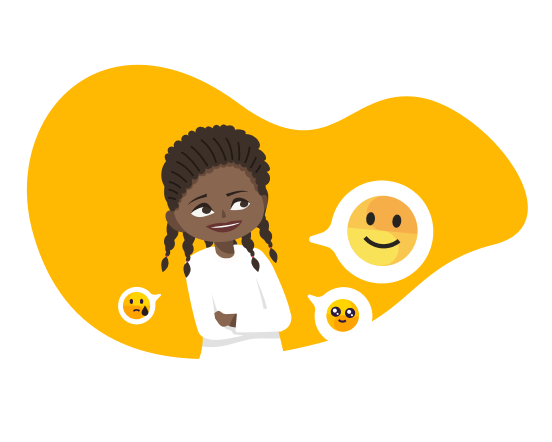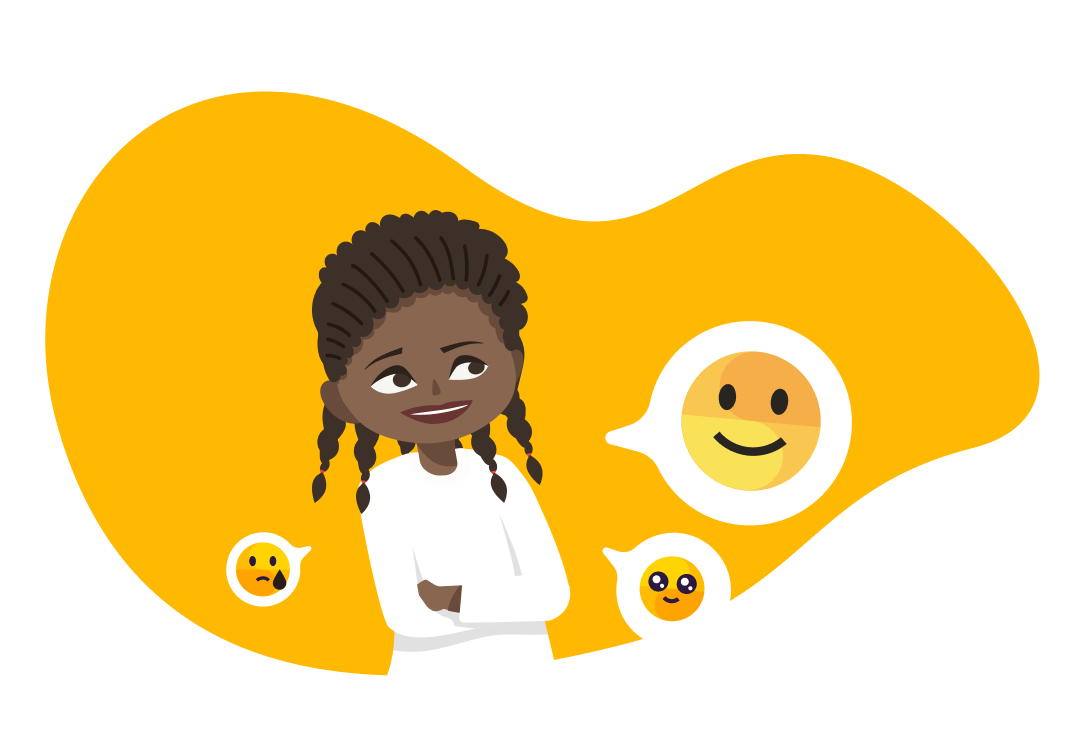
4 stages of a child’s cognitive development
The cognitive development area is the area of human psychology that is directly related to his consciousness and cognitive processes. This area includes the abilities, skills, and knowledge of a person about the world around him and directly about himself. Therefore, the study of cognitive development features is an important step in understanding children and teenagers’ psychological health.
It is important to understand that the change in thinking processes occurs constantly, moreover, from early childhood. After all, this phenomenon is required by children for harmonious interaction with the world around them. The development of cognitive abilities and functions largely depends on the child’s upbringing, mentality, and environment. However, if you clearly understand what abilities and at what point it is most appropriate to develop, then the chances of achieving the best results become much greater.
In this article, we will explore a child’s cognitive development in depth. Links to sources, books, and scientific articles will be at the end of the text.
What is a child’s cognitive development?
The cognitive development of a child is a process of changing the thinking processes at different stages of its development. In this context, thinking processes are understood as the ability to perceive incoming information, form various concepts, find solutions to various problems, think logically, and actively use the imagination and use memory functions.
The American psychologist Jerome Bruner made a significant contribution to the study of the processes of cognitive development. His theory is based on the inextricable connection of cognitive development with sensorimotor skills and the brain’s ability to store images in memory that were actually in a person’s life. According to Bruner’s theory, as the child grows up, the primary role begins to be assigned to symbolic representations of objects and the ability to describe them as one of the regulators of behavior.

Therefore, it is important to teach your child to write and read early. However, the ability to learn these areas largely depends on genetic predisposition, natural concentration, and other factors. Sometimes, a child’s reading difficulties are because he very quickly loses the meaning of what he read earlier. This may also be due to the fact that it is difficult for him to form letters into syllables or syllables into full sentences. A child also may be a dyslexic, a person who is unable to read due to disease.
Nevertheless, in preschool children, it is important to develop the following cognitive skills:
- memory;
- thinking;
- attention;
- speech;
- auditory perception.
Some information about memory development
At an early age, children perceive and remember information better if adults present it playfully. Faced with the need to remember a certain event, children start looking for options to remember the information they need.
Usually, they use images for this. After all, visual memory at an early age dominates over other types of memory. Therefore, it is important not to overload young children with verbal information. To develop memory, it is enough to read and retell short stories and memorize small poems for children.
Three sides of the development of logical thinking
The ability to build logical chains and notice cause-and-effect relationships between various objects is an important part of a child’s full intellectual development.
It is necessary to communicate with the child on a daily basis and involve him or her in various activities. All kinds of exercises and games greatly facilitate the assimilation of new knowledge. Therefore, they help to harmoniously and fully develop cognitive skills.
Let’s move through these three points.
Developing attention
The main challenge for parents is to stimulate and support the cognitive activity and curiosity of the baby. If a child has a desire to learn about certain areas of life, his interest should be stimulated. This will not only develop the child’s outlook but also help meet his needs for specific knowledge.
Speech development
Speaking is an important element of communication. We need it to fully share information and convey our knowledge to other people, thereby creating a communication experience.
Spoken language should be developed from an early age. This is done quite simply since children very quickly absorb the information that parents and surrounding adults present to them in different speech forms.
Your children can also learn foreign languages. For example, French or Spanish. This is much easier in childhood.
Auditory perception development
A child’s brain is ready to receive information and develop based on the knowledge gained from birth. Sound perception skills are formed in children automatically — they react to loud noise, conversation, unusual sounds.
Therefore, auditory perception is an important source of information from the outside world. Developing this skill is also not difficult. It will be perfect to listen to calm music and watch cartoons with pleasant sounds. But this doesn’t mean that you need to keep a kid away from loud sounds.
What role do cognitive abilities and skills play for a child?
The development of cognitive skills in a person’s life occurs continuously and constantly: in kindergarten, school, college, university, at work, even when communicating with friends. Cognitive abilities help us to receive, process, evaluate, remember and use the information received to achieve our goals.
To develop these abilities, it is useful for children and teenagers to read various literature, solve puzzles, play educational board games, for example, chess. This helps to analyze what is happening and find options for applying the knowledge gained in real life.
Piaget’s theory of the cognitive development of children
When studying psychology at the time of a child’s development, great attention is paid to speech and thinking. This is because it is these components that are the basis of intelligence. This feature was studied by J. Bruner, N.B. Shumakova, L.S. Vygotsky and J. Piaget.
Swiss scientist and psychologist Jean Piaget has developed a unique theory of the cognitive development of children. It is based on a detailed study of the development of the ability to think till the moment when thinking is combined with speech. Piaget paid special attention to visual-effective and figurative thinking. This approach is due to the psychologist’s assumption that thinking is formed long before the moment when it becomes speech.
Piaget believed that each person has the ability to independently model their own cognitive skills through the actions that he performs in the world around him. The psychologist, in his theory, has identified certain logical structures of thinking, which are called “operations”.

Under “operations” are meant mental actions that have the property of reversibility. In other words, when a child performs a certain action, he or she can return to his starting position anytime by performing the opposite action. According to the scientist, the main essence of children’s cognitive development is the mastery of all operations.
According to the theory of the scientist, knowledge is a process. Therefore, to know something means to act in accordance with the existing knowledge. In this case, actions can be performed in mind or practice. Piaget saw the main goal of intellectual thinking in adaptation to the world around him.
Jean Piaget’s theory includes a four-stage system of the child’s intellectual development from the moment of birth to the age of 15. He identified the following stages of cognitive development:
- Sensorimotor (0-2 years);
- Preoperational (2-7 years);
- Concrete operational stage (7-11 years);
- Formal operational (from 12 years onwards).
The age written there is not accurate. It can differ from one child to another. You also need to understand that there are no borders between one stage and another. They are all going smoothly.
Sensorimotor stage
The duration of the course starts from 18 to 24 months. At this stage of life, the child acquires the ability to perform elementary actions. At the same time, the child learns to separate himself psychologically from the world around him and begins to cognize himself as a subject capable of performing certain actions.
At the same stage, the skills of volitional control of one’s own behavior are acquired, an awareness of the constancy and stability of objects and objects is observed. During this period, the child begins to understand that the surrounding objects exist even when he cannot perceive their finding through the senses. This is the most important thing.
Preoperative stage
The duration of the course covers the period from 18 to 24 months to 7 years. During this period, children begin to actively use various symbols and speech to receive and transmit information. They have the ability to mentally imagine objects and describe them in words. Most often, children use familiar images and objects in the process of playing and learning.
During this period, the child’s imagination develops well. However, when considering a specific subject, the child’s attention is concentrated on the most memorable detail. At the same time, he or she doesn’t betray the importance of other details.
At this age, it is difficult for children to imagine how people around them perceive objects. The fact that other people see other things is not obvious for a one-year-old baby. This is a kind of expression of egocentrism of thinking — it is difficult for a child to take another person’s place. A child is not able yet to see objects and images through the eyes of other people.
At this age, the child acquires the ability to classify objects according to various criteria, acquires the skills of solving certain problems. Simultaneously, the difficulty is that it is difficult for a child to express his thoughts in verbal form.
Stage of specific operations
The duration of the course covers the period from 7 to 12 years. At this age, children are able to perform flexible and reversible actions, which they perform, taking into account the rules of logic. The child begins to use concepts and associate them with specific objects and images. A kid can clearly explain the performed actions, analyze different points of view.
Children of this age become objective in assessing what is happening. He gradually acquires the skills of an intuitive understanding of the principles of logic. The ideas about the preservation of the mass, quantity, and volume of objects are clearly formed. The perception of reality begins to actively develop while imagination fades into the background.
Formal operations stage
The duration of the stage begins at the age of 12 and continues throughout life. Children develop abstract thinking. There is a stable development of logic, the ability to explain complex phenomena. The experience of a systematic search for solutions to problems with a review of various solution schemes and an analysis of the effectiveness of each of them is being developed.
Starting from this period of time, a child is able to arrange objects according to specific properties, imagine in his mind, and clearly list the performed, already performed actions and those actions that he has yet to perform. For example, an eight-year-old child may well remember a route. But he or she would be able to reproduce it graphically only at the age of 12.
Piaget argued that developing a child’s cognitive skills is influenced by acquired experience, maturation conditions, and social environment. The scientist believed that the biological maturation of a child takes an important step in his intellectual development. In contrast, the process of maturation itself is reduced to the discovery of new possibilities of the child’s body for active development.
According to Piaget, the formal-logical development of a child is the pinnacle of human intellectual development.
Possible cognitive problems and their causes
Cognitive developmental problems are disorders associated with a decrease in memory, intellectual performance, information processing, analysis, and other functions compared to the initial development level.

Such problems appear in different forms and at different ages, depending on the organism’s individual characteristics. Cognitive impairments belong to the category of polyetiological conditions that arise as a result of different pathogenesis and etiology diseases.
The main reasons for the appearance of cognitive impairment include:
Neurodegenerative diseases:
- Parkinson’s disease;
- Alzheimer’s disease;
- Progressive supranuclear palsy;
- Frontal-temporal and cortico-basal degeneration;
- Lewy body dementia;
- Other degenerative changes in the brain.
Vascular diseases of the brain:
- Multi-infarction conditions;
- Strategic cerebralinfarction;
- Consequences of hemorrhagic brain damage;
- Chronic cerebral ischemia;
- Combined vascular brain damage.
Metabolic encephalopathy:
- Renal;
- Hepatic;
- Hypoxic;
- Deficiency states (lack of folic acid, vitamins B1 and B12 or proteins);
- Hypoglycemic;
- Distyroid;
- Industrial and domestic poisoning.
In most cases of chronic degenerative and vascular diseases of the brain, cognitive impairment is irreversible. However, if metabolic disorders of the systemic type are the cause of cognitive disorders, then corrective therapy leads to a complete restoration of brain functions.
Cognitive development problems are usually the result of traumatic brain injury, cerebrospinal fluid disorders, or the development of a brain tumor. It has been proven that in 5-7% of cases, the problems of cognitive development at the stage of dementia, as well as at the stage of mild and moderate mental disorders, are completely reversible.
How to create conditions for the cognitive development of the child
The formation of cognitive skills is set at the genetic level. Despite this, the full intellectual development of a child occurs only with the direct participation of parents.
However, the modern way of life dictates different rules and imposes certain restrictions on this participation. Instead of live communication with children, engaging in their development and upbringing, parents increasingly replace their presence with smartphones. Many children born in the 2010s receive them almost from birth.

This approach is fraught with danger for full-fledged cognitive development. Smartphones, tablets, laptops — all these devices transmit mainly visual information in the form of virtual objects and icons. Such symbols do not require special efforts from the brain to recognize, classify and perceive information. That means that YouTube and some other services stop children from developing thinking abstractly.
The information that the child perceives by reading is more abstract. Indeed, in this case, the brain is actively involved in the work: it interprets the description and images. This happens in order to combine this information into a single whole in your imagination. So children can visualize the actions that are described in the book.
Gadgets themselves are not harmful. You just need to filter the content that your children watch at least till the age of 12.
For the cognitive development of a child at an early age, parents need to use:
- constructors;
- games aimed at developing fine motor skills;
- mosaics and puzzles;
- speech classes (retelling stories, memorizing poems);
- applications, drawing, and other creative directions.
Children of primary school age will benefit from the following exercises:
- verbal counting;
- reverse pronunciation of words;
- the creation of new routes and the search for different options to overcome them;
- reproduction of events that occurred during the day;
- performing some actions with both hands at the same time;
- visualization of information that needs to be remembered and reproduced.
It is important to engage with your child regularly to achieve the desired results in cognitive development. Continuous exercise significantly increases the effectiveness of the development of cognitive skills and abilities.
Conclusion
Jean Piaget’s theory is a solid foundation for all future professional research on children’s intellectual development. Its principles formed the basis for developing various exercises aimed at improving cognitive abilities in children of different ages.
Don’t worry if you think your baby has cognitive delays. It is important to show maximum patience here. It has been repeatedly proven that there are “sensitive periods” in a child’s life, in which some skills are easier for him, but others are a little more difficult. Guided by Piaget’s theory, it is important to understand that the process of developing cognitive abilities in children must be continuous. At the same time, the very process of mastering new skills should be gradual.
In some cases, it takes a little longer for a child to acquire a skill. However, this doesn’t mean at all that he has problems with cognitive development or complex pathologies. It’s just that each child is individual. Therefore — he comprehends the world around him in his own way and for his own period of time.
Remember that strong and refined cognitive abilities are the key to success in achieving your goals, not only in school but also in life.
Sources
- Jean Piaget. Psychology of intelligence, 1942.
- Jean Piaget. Child’s language and thought, 1932.
- L.F. Obukhova. Child (age) psychology. Textbook, 1996.
- Yu. Kulagina. Developmental psychology: child development from birth to seventeen years, 1998.
- Jerome Bruner. Studies in cognitive growth, 1966.

new engaging articles





